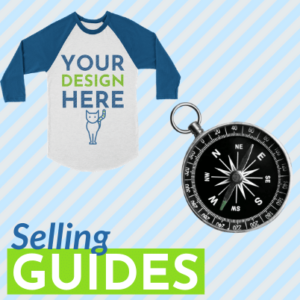What is a Brand Personality (& How to Develop One)
The ecommerce landscape is increasingly competitive, with new online stores popping up every day. The good news is you don’t have to pay attention to the noise but instead focus on carving out your unique presence in the space, starting with brand personality.
Building a solid brand personality for your online store is a must to stay recognizable & cultivate a loyal following. But it’s more than just a story & graphics. When you establish a brand personality for your ecommerce business, you spark an emotional connection with your target audience that leads to increased customer engagement, raises your brand recognition, & ultimately drives sales.
What Is Brand Personality?
Brand personality refers to a business’s unique set of human characteristics that help forge a connection with an audience. It shapes how customers perceive & interact with your business, influencing their decision to buy from you. Developing a brand personality also requires a deep understanding of your target market & careful consideration of the traits you want your brand to embody.

Why Is Brand Personality Important?
Brand personality is more than trendy marketing speak; it also helps establish customer authenticity & trust. Studies show 90% of consumers say authenticity is a key factor when deciding which brands to support. Trust is also paramount between your ecommerce business & customers. Surveys shows that 46% of consumers say they would pay more for brands they trust.
Beyond wanting to establish authenticity & trust, a brand personality raises awareness in the market. If customers can’t remember your ecommerce store after a purchase, why would they come back to spend more?
How to Define Your Brand Personality
Knowing brand personality is essential, but knowing how to build one for your own ecommerce is another. Need help? Here’s how to get started building your strategy.
Define Your Target Audience
Creating a brand personality that makes an impact all starts with your target audience. Who are they? What are their age ranges? Occupations? Interests? But perhaps most importantly, what pain points are they trying to solve by shopping at your online store?

Market research isn’t just for big corporations, small online stores & solopreneurs can master it, too. Once you gather your data, you can tailor your brand personality to resonate with your customers & keep them returning for more. Here’s how to start researching your audience:
- Research product keywords on Google Trends & tools like Keysearch
- Scope out your competition
- Turn to social media
- Look for subreddits that attract your ideal audience
- Ask your current customers for feedback
Remember that market research isn’t a set-it-and-forget-it strategy. Savvy marketers revisit their tried-and-true methods a few times a year to consider shifting trends in their audience base.
Develop Customer Avatars
Creating customer avatars help identify your audience’s needs, pain points, & goals. First, take your market research & look for trends in your audience base. From here, you can look for commonalities among your customers, including:
- Adventure travelers craving a flexible lifestyle
- Entrepreneurial-minded remote workers looking to launch their net side hustle
- New stay-at-home Moms with a disposable income who love shopping for their kids
- Busy executives looking for unique, bespoke gifts for corporate clients that stand-out & build relationships
Next, write out who these avatars are, give them a name, & write out their backstory & what they’re looking for. You can keep refining this step, but the goal is to clearly understand who you’re creating products for & selling to.

Craft Your Ecommerce Brand Voice
Your brand voice is all about the language & tone you use to communicate with your customers. Think about your customer’s values & characteristics, from email marketing to product descriptions. Revisit your customer avatars to nail down who these people are. Should you talk to them in a humorous & playful tone? Or something more humorous & quirky? Whatever you decide, stay consistent across all your customer touchpoints, from your website to social media & customer service interactions.
Your brand voice should also reflect in your products. Fortunately, POD makes it easy to grow your brand & pivot as the trends change. Upload your favorite designs to your CustomCat library, apply them to your favorite products, & we’ll do the rest. We also offer easy integrations to connect CustomCat with your online store. You never have to touch your inventory–we’ll even include a shipping label reflecting your ecommerce business. When someone buys a product, we produce & fulfill it so you can focus on growing your business.
Get started with CustomCat here.

Create a Compelling Brand Story for Your Online Store
Now that you know how to talk to your ideal customers, start telling your story. Your brand story could include why you started your business in the first place, why you serve who you serve, or your company’s values. Share your brand story consistently across your marketing channels to help establish authority & develop deeper connections with your audience.
Design a Memorable Visual Identity
Let’s get visual. Choose elements that reflect your brand personality, from logos to color schemes, typography, & imagery. Your youthful, fun, & wanderlusting audience probably won’t resonate with something that looks corporate or stale. But a more professional audience focused on products that grow their careers is more interested in a brand identity that reflects back their interests.
Foster Authenticity & Consistency
A brand personality for an ecommerce store is nothing without authenticity & consistency. Customers are good at knowing when something feels inauthentic or doesn’t feel or sound true. For example, shouting about your devotion to customer service to the masses quickly backfires if their emails or questions go unanswered.

Remember that consistency is vital in any marketing strategy. After all, no one will know your personality or what it all means without consistency across your ecommerce website, emails, social media graphics, marketing campaigns, & customer service experiences. It’s okay to experiment & see what works for your online store, but it should always come back to staying true to what you & your ecommerce business stand for.
How did you develop your brand personality for your ecommerce business? Let us know by leaving a comment below!


